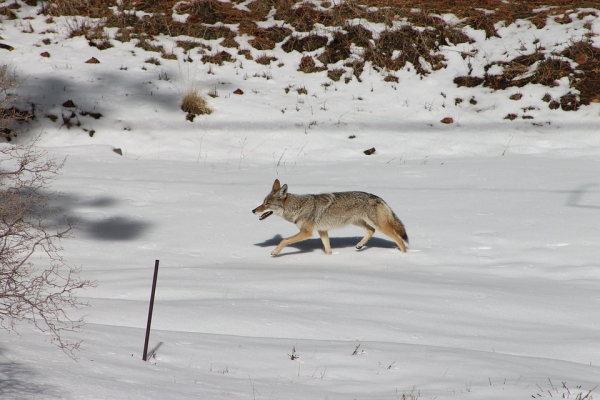Tracking coyote movement in metropolitan areas shows the animals spend lots of time in natural settings, but a new study suggests the human element of city life has a bigger impact than the environment on urban coyote survival.
Researchers monitoring coyotes in Chicago found that habitat – areas with relatively high levels of vegetation cover and low levels of human infrastructure – did not influence coyote survival in positive or negative ways. Instead, areas densely populated with humans were associated with longer coyote lifespans.
“What we found was really interesting, in that the societal characteristics seem to play a much more important role in predicting coyote survival time than the environmental characteristics,” said Emily Zepeda, first author of the study and a postdoctoral scholar in the School of Environment and Natural Resources at The Ohio State University.
Photo Credit: DrReyesFournier via Pixabay
Top Stories Sci/Tech Wildlife

